Keynote: Dajana Zoretić
University of Zagreb, Faculty of Kinesiology
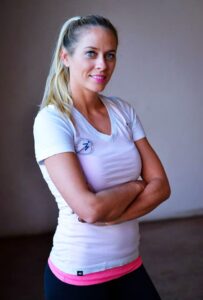
Dr. Zoretić is a distinguished expert in the field of kinesiology and sports training, with extensive experience in both scientific research and practical application. As an associate professor of kinesiology at the University of Zagreb, she earned her PhD in exercise physiology and has dedicated her career to researching and enhancing sports performance. Her impressive athletic background includes winning medals for the national swimming team at a high level, as well as securing the title of world vice-champion in freediving, further demonstrating her deep understanding of elite sports demands.
For the past 15 years, she has worked as a strength and conditioning coach for top water polo clubs across Europe, including in Croatia, Georgia, Romania, and France. Her experience with national teams is also remarkable—she served as the strength and conditioning coach for the Georgian water polo team and is currently leading the preparation of the Serbian national team. Under her guidance, Serbia achieved historic success by winning the gold medal at the Paris 2024 Olympic Games. In recognition of her expertise, she was awarded the title of Best Strength and Conditioning Coach in 2016 in Croatia.
In her lecture, “Planning and Periodization of Strength and Conditioning Training for the Serbian Water Polo Team in Preparation for the Paris 2024 Olympic Games,” Dr. Zoretić will present the training methodology that led to Olympic gold. Through an analysis of players’ physiological characteristics and a detailed review of training processes, the lecture will offer valuable insights into elite sports preparation strategies.
Keynote: Mladen Marinović
University of Split, Faculty of Kinesiology
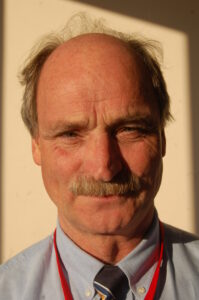
Dr. Marinović is an Associate Professor of Kinesiology at the University of Split (retired 2018). He earned his MA in Exercise Psychology at the University of Belgrade and PhD in Exercise Physiology at the University of Split. He published several papers on anthropometry, physiology, and the psychology of rowing and other sports. In addition to his professional engagement, he was head coach of the Croatian Rowing National team (1992-1998) and head coach of the Croatian Kayak-Kanu National team (flatwater, 2004-2008). He cooperated with the Croatian Karate Association (2001-2003) in the background of diagnostics of karate training status and education of karate coaches, and three years of work as fitness coach of Vinko Ugrinović-Glavanović resulted in the winning of the European bronze medal. He collaborated with two Olympic sailors: Mate Arapov (1997-2000) and Ivan Kljaković-Gašpić (2001-2016), who won the EC in the Fin class three times, winning the first medal for Croatian sailing at the WC. For his work, Dr. Marinović was an invited lecturer at the FISA Coaches Conference three times; from 1997 to 2016, he was a member of the Croatian Olympic Committee’s Commission for the Sports Development and Olympic Preparations; and the Croatian Kinesiology Association awarded him the Lifetime Achievement Charter “Meritorious Kinesiologist.”
Lecture:
Title: Psychological profile of Croatian rowers
The lecture is based on the author’s life experience in rowing. Over forty years, rowers, from young juniors to medal winners at the World Championships and the Olympic Games, have been monitored. This lecture will provide insight into the importance of understanding motivation and personality traits for (1) monitoring and selecting rowers for top sporting achievements and (2) maintaining proper communication, especially with young people in their formative years – particularly important in modern life.
Keynote: Steve Ingham
Director and Performance Scientist at Supporting Champions
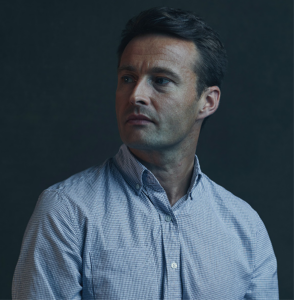
Dr Steve Ingham has a PhD in exercise physiology and a BSc in Sports Science, so he grounds all his work in science and sense. He also ensures ideas are practical and actionable so performance actually happens! He is steeped in high performance and has been integral to the development of Britain into an Olympic superpower. Throughout his career, he has supported over 1,000 athletes, more than 200 of whom have achieved World or Olympic medal success, including some of the greatest athletes in the world such as Dame Jessica Ennis-Hill, Sir Steve Redgrave, and Sir Matthew Pinsent. Steve has coached Kelly Sotherton’s running for the heptathlon and to 4x400m Olympic medal-winning success. Also, he has gained high performance insight working at the British Olympic Association from 1998 to 2004, where he was Senior Sports Physiologist and Sports Science Manager, and at the English Institute of Sport from 2004 to 2016 where he was Head of Physiology and latterly the Director of Science and Technical Development, leading a team of 250 scientists in support of Team GB and Paralympics GB. He is a Fellow of the British Association of Sports and Exercise Science. Steve has consulted with over 20 international federations, multiple professional sports, including Arsenal, Manchester City, and The English FA, and AFC Bournemouth (where he is currently supervising the return of a young player to full training after cancer).
Lecture Title: Performance Insights from Olympic Sport
How do you hatch high-performance? Modern, forward-thinking, contemporary organizations are leaning into understanding the intricacies of leadership and team dynamics. The principles of high performance, distilled from the most competitive arenas, offer invaluable insights for any team looking to excel.
Keynote: Philip N. Ainslie
University of British Columbia, Centre for Lung, Heart and Vascular Health
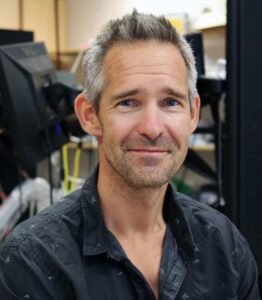
Phil Ainslie is a Professor, Research Chair in Environmental Physiology and co-directs the Centre of Heart, Lung and Vascular Health at the University of British Columbia, Canada. Phil’s research program aims to better understand the mechanisms regulating brain blood flow in health, disease and during environmental stress. His diverse expertise in assessing cardiorespiratory and cerebrovascular function during physiological scenarios ranging from sleep to exercise, the stresses of high altitude to deep-sea diving, and healthy aging to heart and lung disease, has made him a leading authority on vascular function. Phil has published >400 peer-reviewed full manuscripts (h-index: >80; i10 index: >250; >23,000 citations) and has recently co-authored two textbooks in the area of environmental physiology (including the 2nd edition of Advanced Environmental and Exercise Physiology and the 6th edition of High Altitude Medicine and Physiology). In addition to mechanistic laboratory-based experiments he leads regular field expeditions, including various outreach initiatives, to high altitude to study acclimatization and adaptation with particular focus on indigenous populations located in the mountainous regions of Tibet, South America and Ethiopia. Phil has won numerous national and international awards for his research and sits on various senior international scientific leadership and policy advisory groups. He also co-organizes a number of international conferences related to environmental physiology.
Lecture Title: Cerebral and pulmonary stresses of apnea and free-diving
This lecture will provide insight into the cerebrovascular consequence of prolonged apnea in elite free divers. The pulmonary implications of free diving will also be highlighted in both elite free-divers and in the indigenous Japanese Ama divers.
Keynote: Nicholas Elkington
University of Oxford, Department of Physics
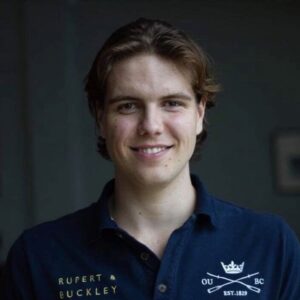 We are pleased to welcome Dr. Nicholas Elkington, astrophysicist and former Oxford University Boat Club rower, to our “Lessons from the Boat” series. Dr. Elkington has balanced elite rowing with academic research throughout his career. His journey from Oxford’s Boat Race crews to developing instrumentation for lunar missions illustrates the transferability of athletic discipline into scientific achievement. His presentation will explore how the attention-to-detail, teamwork, and resilience cultivated through competitive rowing have enhanced his approach to astrophysical research, offering valuable insights for those navigating sport-academic pathways.
We are pleased to welcome Dr. Nicholas Elkington, astrophysicist and former Oxford University Boat Club rower, to our “Lessons from the Boat” series. Dr. Elkington has balanced elite rowing with academic research throughout his career. His journey from Oxford’s Boat Race crews to developing instrumentation for lunar missions illustrates the transferability of athletic discipline into scientific achievement. His presentation will explore how the attention-to-detail, teamwork, and resilience cultivated through competitive rowing have enhanced his approach to astrophysical research, offering valuable insights for those navigating sport-academic pathways.
Lecture:
Title: From Oxford Blues to Lunar Views: Nick Elkington’s Journey Through Rowing and Space